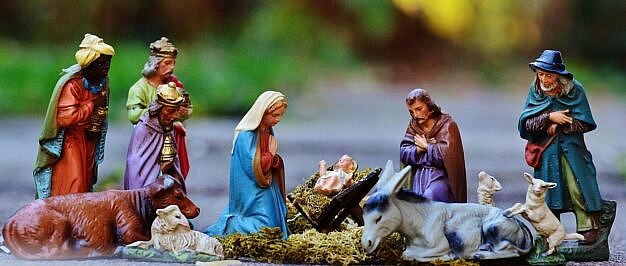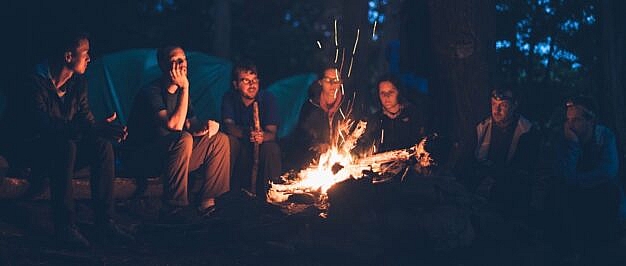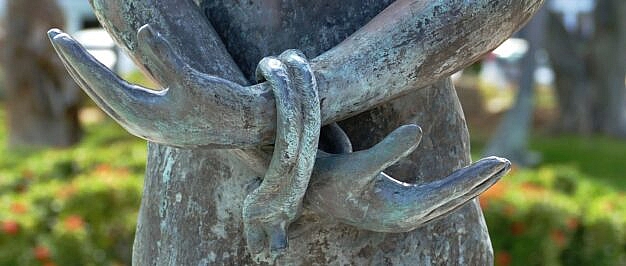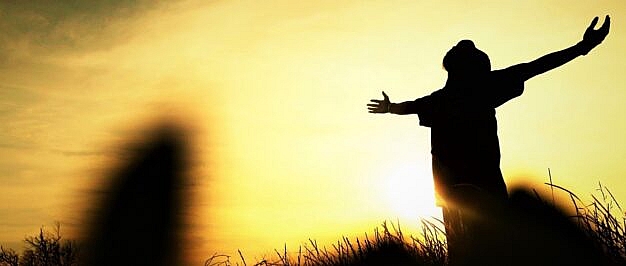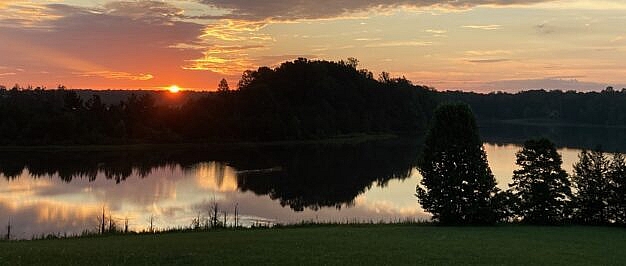Once upon a time I was falling in loveNow I’m only falling apart.There’s nothing I can doA total eclipse of the heart. – Jim Steinman On April 8, a total solar eclipse made a diagonal cut across parts of Central and North America, with parts of 15 U.S. states within the path of totality. Here in St. Louis, we didn’t get this totality, but were in something like the ninety-ninth percentage and got enough of it to know something strange …
Category: Scripture
“But some seed fell on rich soil, and produced fruit, a hundred or sixty or thirtyfold. Whoever has ears ought to hear.” (Matthew 13:9) My father’s garden wasn’t much by the standards of many gardens. It was situated on a small plot of land in the backyard of my North St. Louis home in the 1960s and early ‘70s, planted with love, passion and knowledge gleaned from the pages of Organic Gardening magazine. It sat at the back of the …
Christmas Eve has always been my favorite day of the year. As a child, although Christmas morning brought presents around the tree, it was Christmas Eve that brought the emotion. Christmas Eve is about expectation, hope and promise. Christmas Eve was the one night of the year that my sister, brother and I all slept in the same bed on the second story of our home in North St. Louis so (when we were very young) Santa could come and …
A Christmas Message and Video For two thousand years, Christians have gathered around fires, in churches and in their homes to retell the story of the Incarnation and birth of Jesus Christ. They have passed on the good news to each other — and especially to their children — that God decided He needed to be with us, needed to become one of us. We believe the story of the birth of Jesus in Bethlehem to be true history. But …
I continued praying this past week with “Journey with Jesus,” Larry Warner’s guide through the Spiritual Exercises of St. Ignatius Loyola. The theme was “indifference,” in the Ignatian sense of the word, so let’s begin there… — Although “indifference” is often used to speak of not caring about something or having a lack of passion, in this spiritual sense it carries a different (and deeper) meaning. When properly understood and embraced, it leads to a freedom to say yes to …
As I continued my way this week through “Journey with Jesus,” Larry Warner’s guide through the Spiritual Exercises of St. Ignatius Loyola, the theme was “service,” with Jesus set before us as role model. The grace I was told to pray for was the ability to own my role as one who serves others. Here are a few thoughts from my journal… — “Jesus did not come to be served but to serve.” (Matthew 20:28) This challenge to “be like …
I am slowly making my way through Larry Warner’s book, “Journey with Jesus,” yet another modern (and insightful) take on the Spiritual Exercises of St. Ignatius Loyola. This past week, the theme was “reverence,” and over and over I was praying for the grace to be in awe of God. Here are a few thoughts from my journal… — Yesterday I walked the wooded path that loops around Mallard Lake near my home. I was still contemplating the theme from …
In a few weeks I will begin another year of guiding another person through the Spiritual Exercises of St. Ignatius Loyola. After a few weeks of “preparation days,” an introduction to this 500-year-old way of drawing closer to God, we will begin what is called “The First Week,” so named because the Exercises were originally created to be experienced over a period of thirty days. This first week is a deep dive into our lives of faith and sin. It’s …
I am up early this morning in Spotsylvania County, Virginia, where we’re visiting family. It’s about 4:30 as I begin to write this and I’m facing east, watching the sky grow orange at its base and ever brighter in its further reaches. The reservoir that lies about a football field away from the porch where I sit is slowly making its way into the light. Sound is amplified by the expanse of water, so I’m hearing the world come alive …
As spring comes to America’s Midwest, I am reminded of this reflection I wrote a couple of years ago for a group of spiritual directors. The conversations in it bounce back and forth between what I imagine the risen Christ might say to me and the common struggles of faith that spiritual directors often hear from those who share their stories with us (and also feel ourselves from time to time, of course). The title, “Let Me Easter in You,” …


